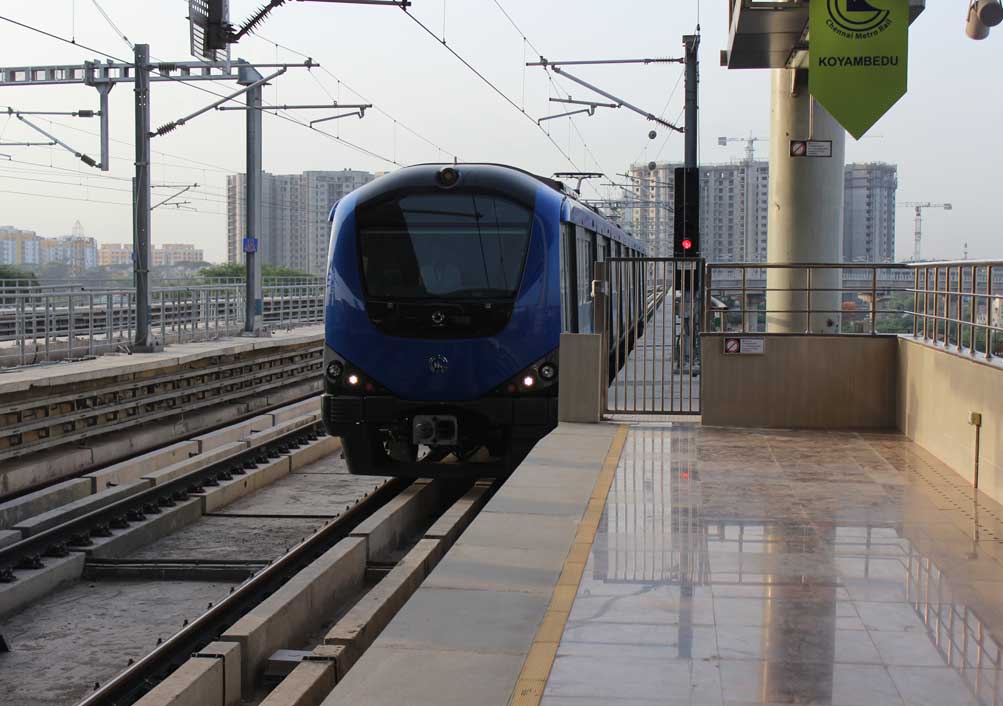In W.P.No.12697 of 2022-MAD HC- Vacant lands belonging to temples can be acquired for public purposes and in doing so, no heritage structures will be affected: Madras HC on impact of Phase II of Chennai Metro Rail Project Justices Munishwar Nath Bhandari & N. Mala [20-06-2022]

Read Order: G.Gouthaman And Ors v. The State of Tamil Nadu And Ors
Tulip Kanth
Chennai, June 21, 2022: The Madras High Court has recently closed a Writ Petition pertaining to the impact of Phase II of Chennai Metro Rail Project, with the direction that if the lands belonging to the temples such as vacant lands or used lands for commercial purposes are required, they can be acquired for public purposes by applying the provisions of law.
Declaring the direction quoted in one of the paragraphs of the judgment in the suo motu writ petition as per incuriam, the Division Bench of Justice Munishwar Nath Bhandari and Justice N. Mala said, “ If a Court issued direction going contrary to the statutory provision, then such direction is to be treated as per incuriam. It is more so when the Court has power to declare any provision as ultra vires, if it is hit by the provisions of the Constitution of India or other statutory provisions. But unless it is so declared as ultra vires, it cannot be nullified by a direction and such direction given is to be treated as per incuriam.”
This writ petition was filed to seek a declaration to declare that few Temples namely Mylai Sri Kapaleeswarar, Vadpalani Murugan, Vadapalani Sri Vengeeswarar, Vadapalani Sri Alagar Perumal, Virugambakkam Sri Sundaravardharaja Perumal, Valasaravakkam Sri Velveeswarar, Poonamallee Sri Thirukachi Nambigal and Sri Varadaraja Perumal, which may be impacted under Corridor 4 of Phase II of the Chennai Metro Rail Project, are ancient monuments and heritage structures under the Ancient Monuments and Archaeological Sites and Remains Act, 1958 read with Article 26 of the Constitution of India.
This direction was being sought in the light of the judgment of a Division Bench of this Court in Suo Motu W.P.No.574 of 2015 and W.P.(MD) No.24178 of 2018 decided by a common order, wherein it was held that the temple lands may not be subjected to alienation contrary to the wish of the donor and, accordingly, the lands shall always remain with the temples and that the public purpose theory shall not be invoked in cases of temple lands, over which the interest of the community people of the religious denomination generally rests.
Referring to paragraph 33 of the Suo Moto Writ Petition whereby it was opined that the public purpose theory shall not be invoked in cases of temple lands over which the interest of the community people generally rests, the Division Bench opined that provision of law such as Section 34 of the Hindu Religious and Charitable Endowments Act, 1959 and Section 3 of the Tamil Nadu Acquisition of Land for Industrial Purposes Act, 1997 prevail and these provisions having not been declared as ultra vires, the competent authorities are empowered to exercise the said provisions. Therefore, the Bench clarified that if the direction quoted in paragraph 33 of the judgment in the suo motu writ petition runs counter to any of the statutory provision, it may be treated as per incuriam.
Hence, holding that if the lands belonging to the temples, like vacant lands, or used lands for commercial purposes are required, it can be acquired for public purposes, the Bench closed the Petitions.
Sign up for our weekly newsletter to stay up to date on our product, events featured blog, special offer and all of the exciting things that take place here at Legitquest.




Add a Comment